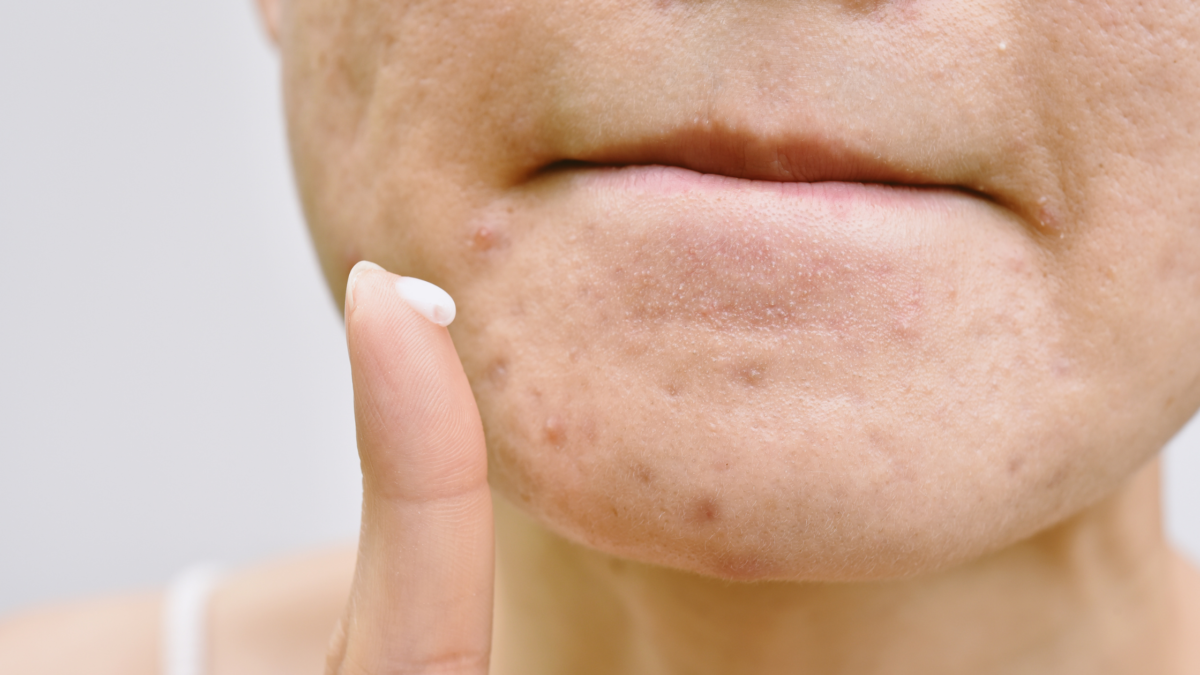


Medically Reviewed By Margaret Etudo. Written By The Vitamins For Woman Team.
Many women wonder if estrogen creams can truly improve skin health or if the hype is just clever marketing. The truth is more complex than we’d like, and research is still catching up.

Like many women in midlife, you’ve probably scrolled through forums or newsletters hoping to find that one magic product to restore youthful, glowing skin.
One topic that sparks both hope and skepticism is estrogen face cream for anti-aging. Some women swear by it, saying their skin feels plumper and smoother, while others doubt its effectiveness and worry about safety.
This confusion is understandable. As hormones shift during menopause, our skin inevitably changes. Fine lines appear, hydration declines, and skin feels thinner. But does applying estrogen topically really reverse these effects? Let’s unpack what the research says and what real women are experiencing.
Collagen and elastin are proteins that keep our skin firm and resilient. As we age, our bodies produce less of these proteins, and skin cell turnover slows down. Hormonal changes, especially the sharp drop in estrogen during menopause, accelerate this process.
According to a review published in Clinical Interventions in Aging (Lephart, 2018), estrogen deficiency is strongly linked to skin thinning, decreased collagen, and reduced water retention in the skin.
Women also face environmental and lifestyle factors like sun exposure, smoking, stress, and dehydration that further contribute to wrinkles and dullness. Because skin is the body’s largest organ, it often shows signs of internal deficiencies first.
Here’s where things get tricky. While systemic hormone replacement therapy (HRT) is known to improve skin thickness and elasticity, the evidence for topical estrogen creams used specifically for anti-aging is limited.
Some small studies, such as those summarized in Drugs in Context (Patisaul & Jefferson, 2010), found that topical estrogen could improve skin hydration and thickness. However, experts caution that these findings are preliminary, and not all products are tested for safety or consistent dosing. In fact, one study reported that Premarin cream applied to the face led to deeper wrinkles after 12 weeks, possibly due to changes in skin thickness.
Many dermatologists agree that while estrogen plays a role in skin health, the lack of robust studies makes it difficult to recommend estrogen creams for cosmetic purposes. Concerns also exist about long-term safety, especially with compounded products that may not be regulated.
Despite the mixed evidence, plenty of women report that adding topical estrogen to their routine improved hydration, smoothed fine lines, or simply made their skin look healthier.
This could be due to estrogen’s known role in boosting hyaluronic acid and sebum production (Verdier-Sévrain et al., 2006), which naturally enhances moisture levels. Others already using retinol or tretinoin notice that combining these with estrogen creams enhances the skin’s plumpness.
Placebo effect? Possibly. But as with many beauty treatments, perception matters. If a product makes you feel more confident, that alone can be valuable.
Even if you decide to skip estrogen creams, there are evidence-backed ways to improve aging skin:
Some women also add a high-quality multivitamin with biotin and antioxidants to support skin health from within. While supplements are not a substitute for healthy habits, they can provide nutrients that aging skin needs but may not get enough of through diet alone.
If you’re curious about estrogen creams, speak with a healthcare provider who understands both menopause and dermatology. They can help you weigh potential benefits against unknown risks. Be cautious of companies making bold anti-aging claims without clinical proof.
Remember that beautiful skin at any age is more than just products. It’s about daily care, sun protection, good nutrition, and staying hydrated. Anti-aging treatments work best as part of a comprehensive approach rather than a quick fix.
Aging skin can feel discouraging, especially when so many products promise miracles. The truth is, there isn’t one single solution. What matters is finding safe, evidence-based strategies that fit your needs and comfort level.
If you want to support your skin health from the inside, consider pairing a dermatologist-approved skincare routine with a multivitamin that includes antioxidants and skin-supportive nutrients.
At Vitamins For Woman, we believe confidence comes from caring for your whole self. Your skin tells your story, and every chapter deserves to be celebrated.
Kingsberg, S. A., Wysocki, S., Magnus, L., & Krychman, M. (2017). Vulvar and vaginal atrophy in postmenopausal women: Findings from the REVIVE (REal Women’s VIews of Treatment Options for Menopausal Vaginal ChangEs) survey. Journal of Obstetric, Gynecologic & Neonatal Nursing, 46(5), 588-597. https://pubmed.ncbi.nlm.nih.gov/23679050/
Prior, J. C. (2003). Perimenopause: The complex endocrinology of the menopausal transition. Endocrine Reviews, 24(3), 331–343. https://pubmed.ncbi.nlm.nih.gov/9715373/
Schunck, M., Zdzieblik, D., Oesser, S., & König, D. (2015). The effect of collagen peptide supplementation on bone mineral density: A randomized controlled study. Nutrients, 7(12), 7305–7314. https://pmc.ncbi.nlm.nih.gov/articles/PMC8521576/

medically reviewed by margaret etudo, BPharm. written by the vitamins for woman team.